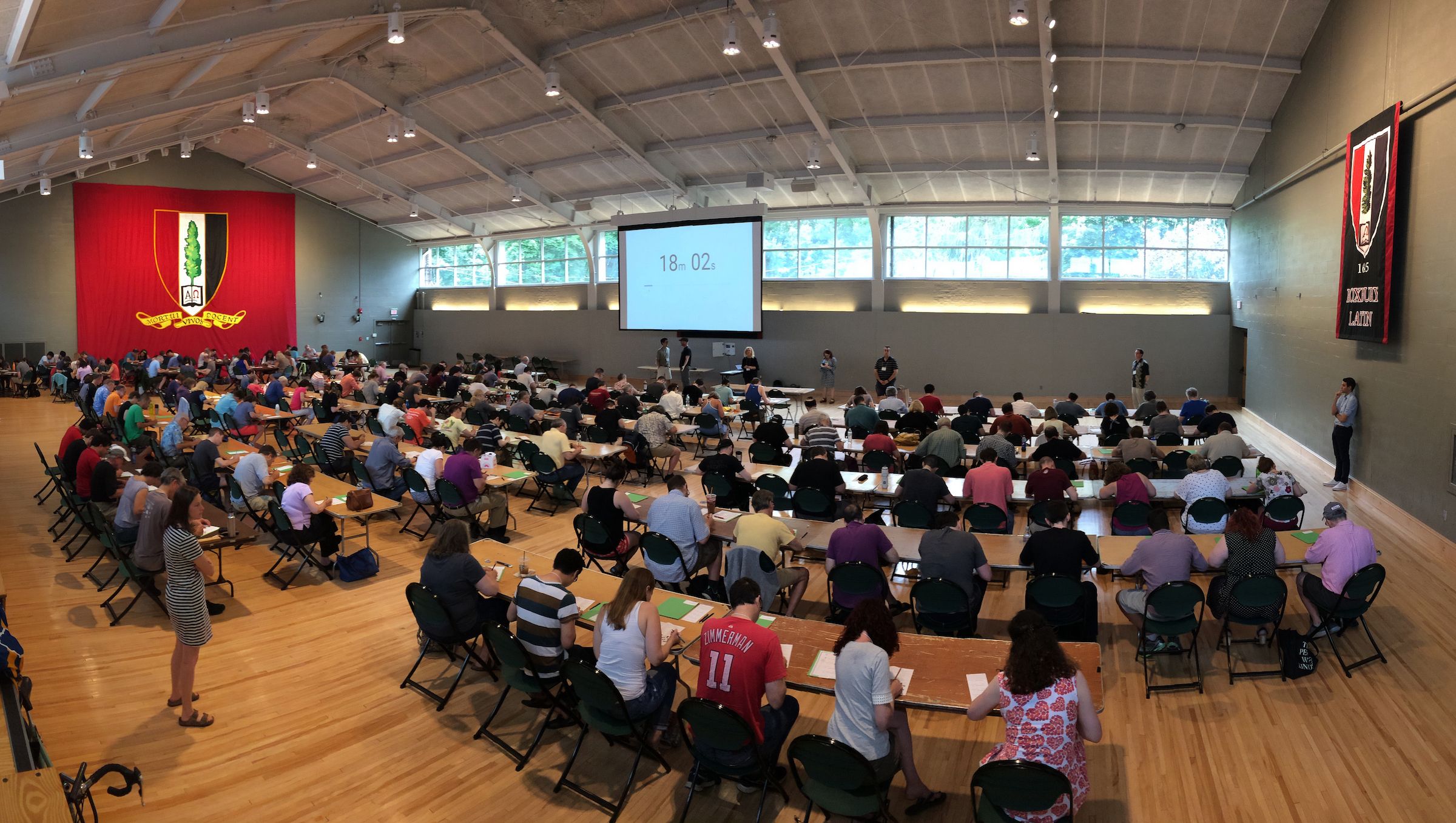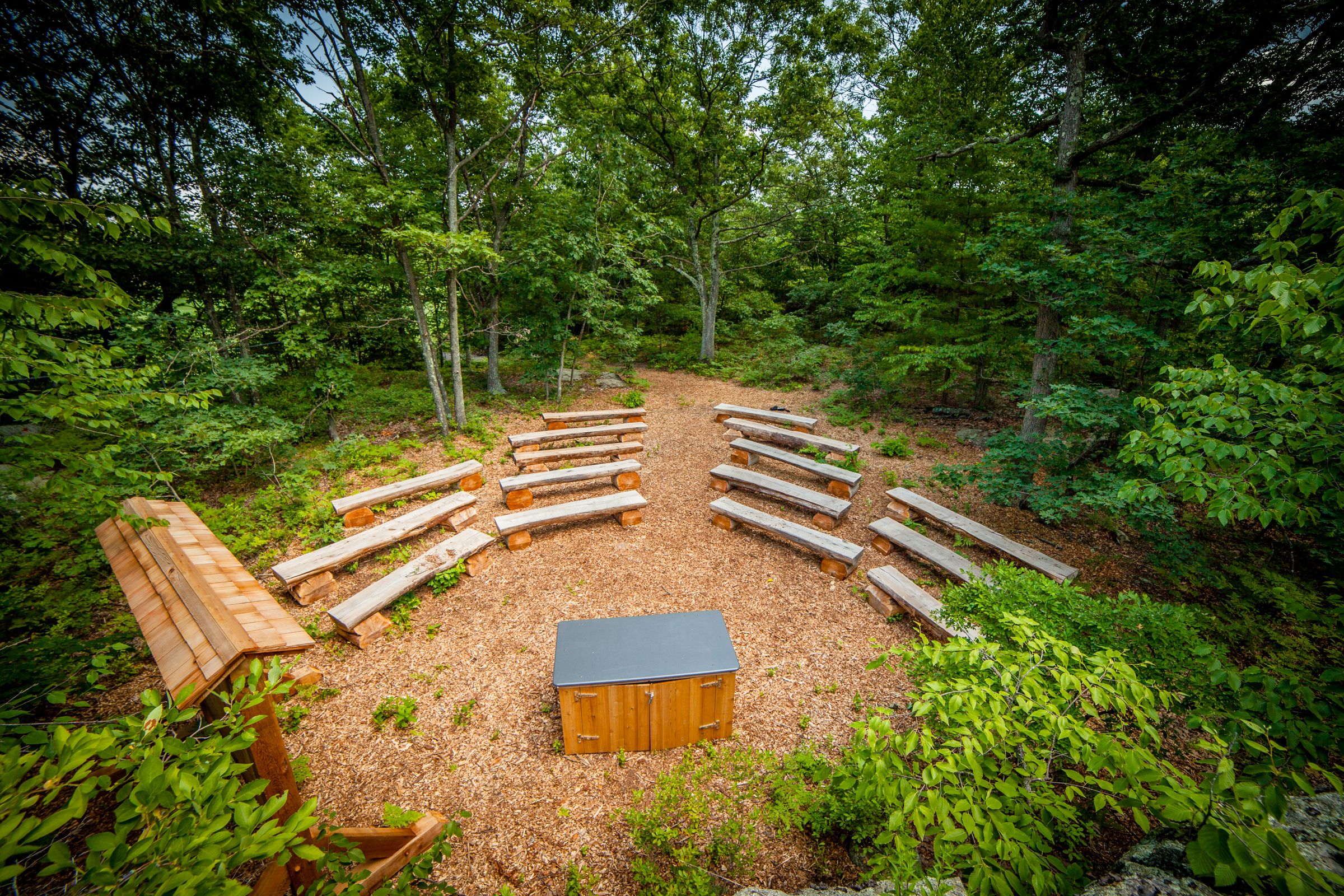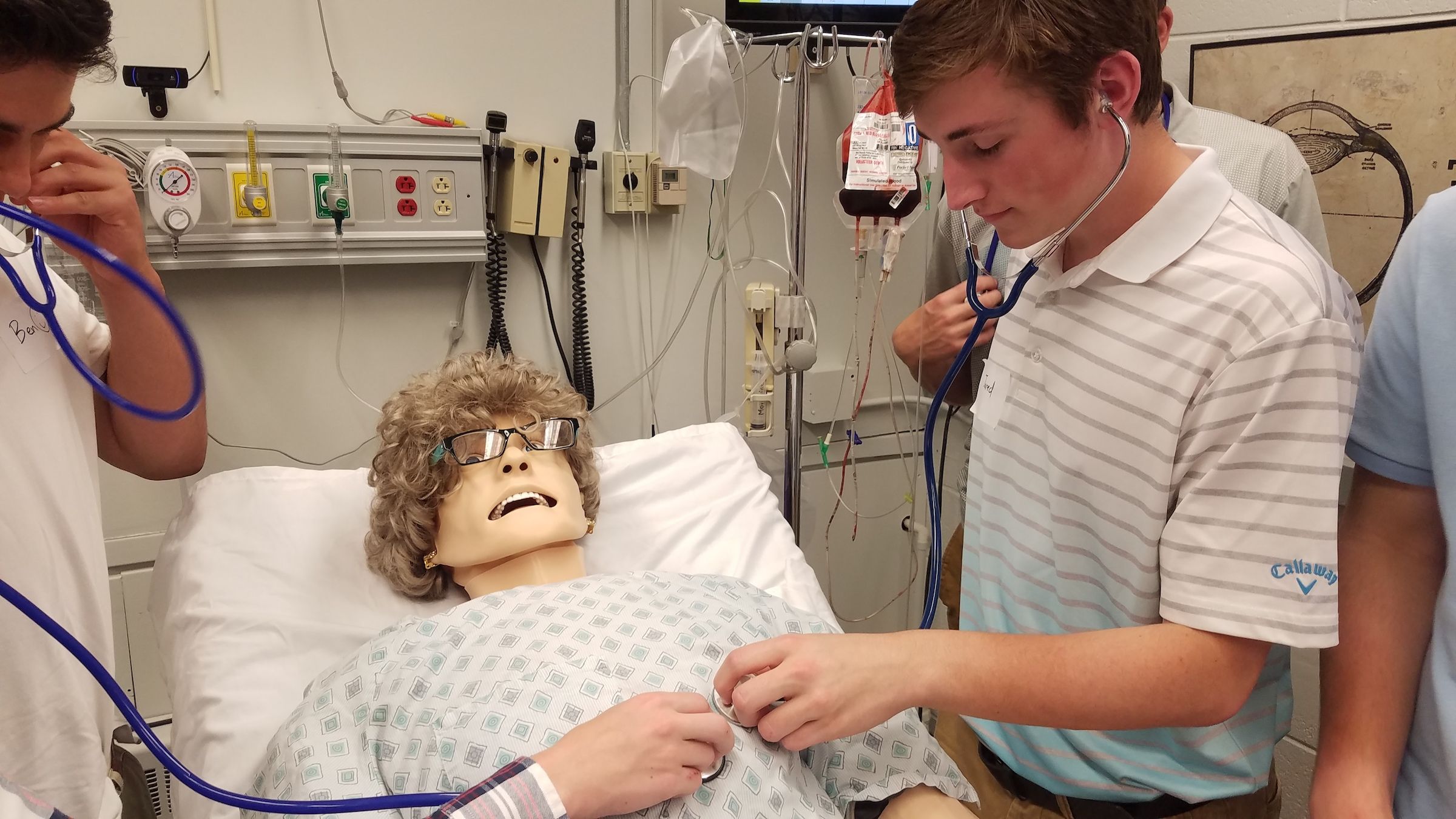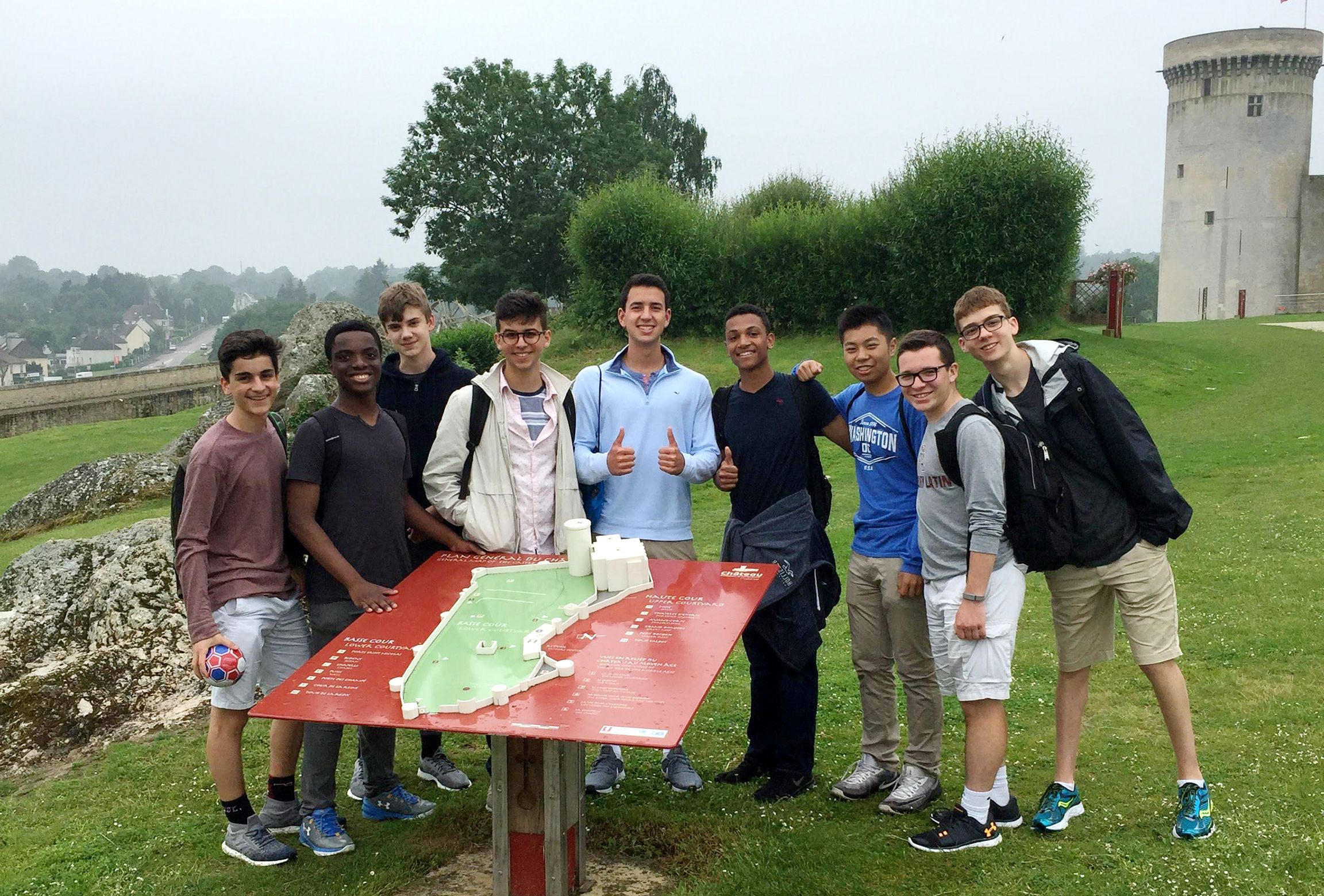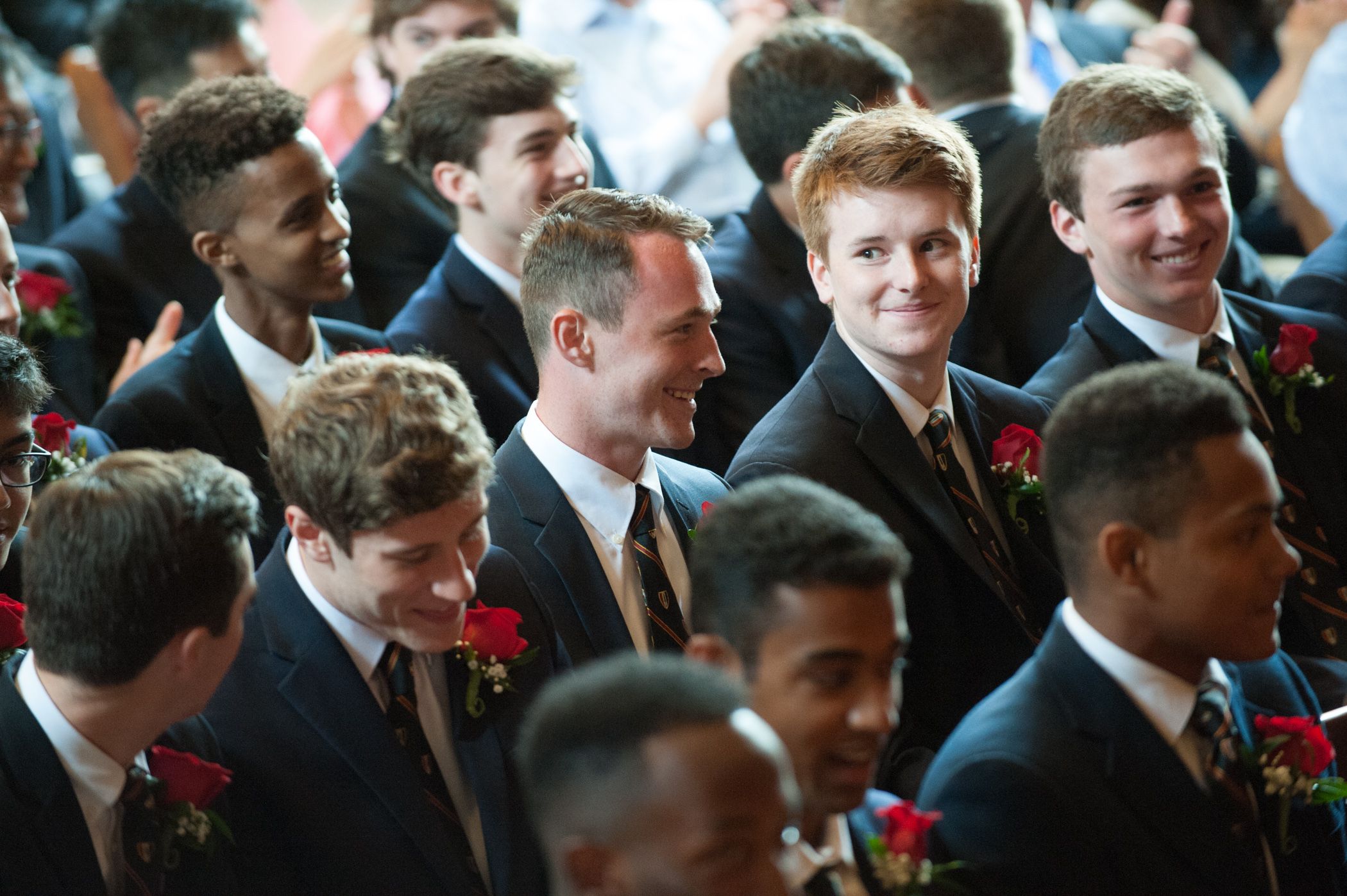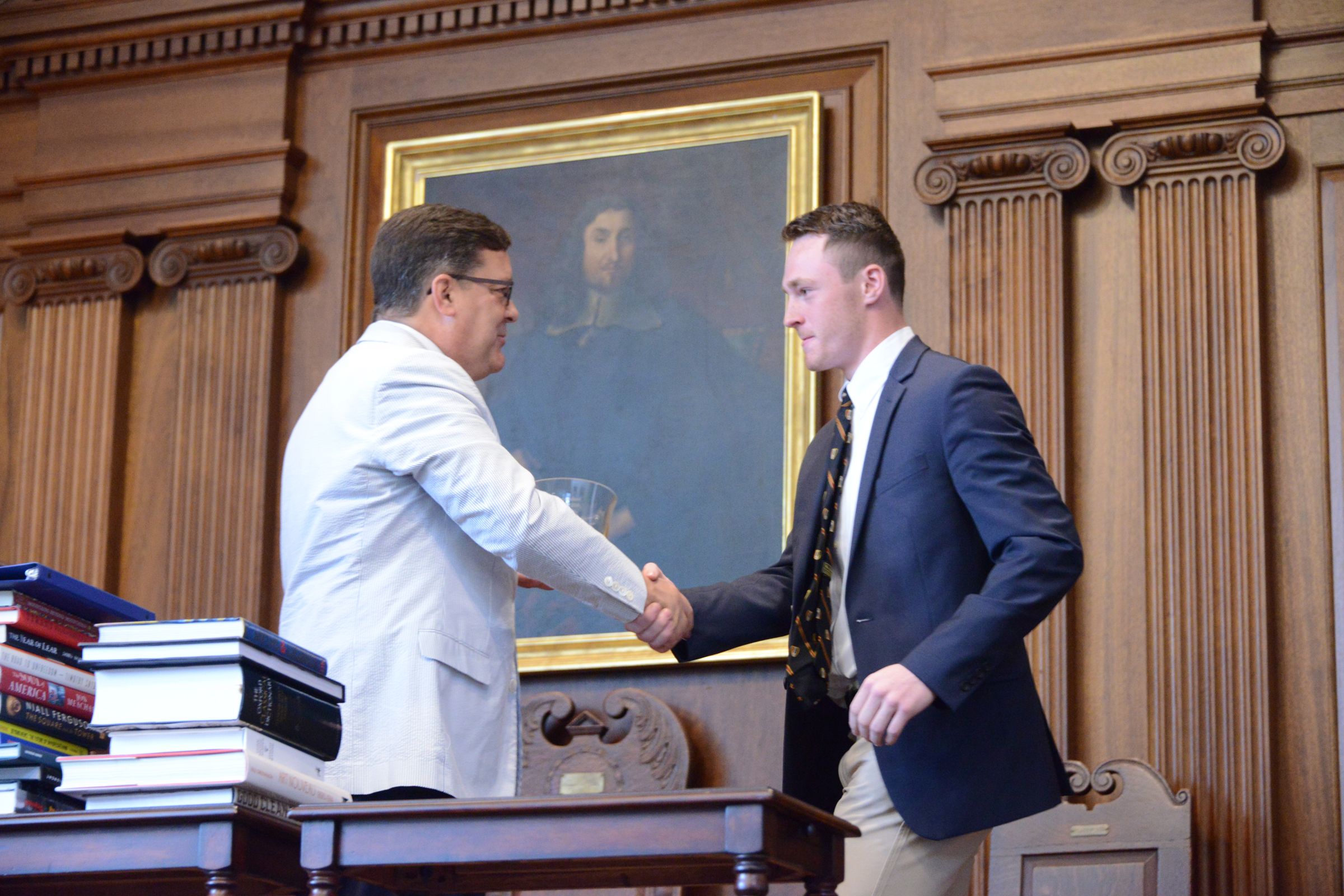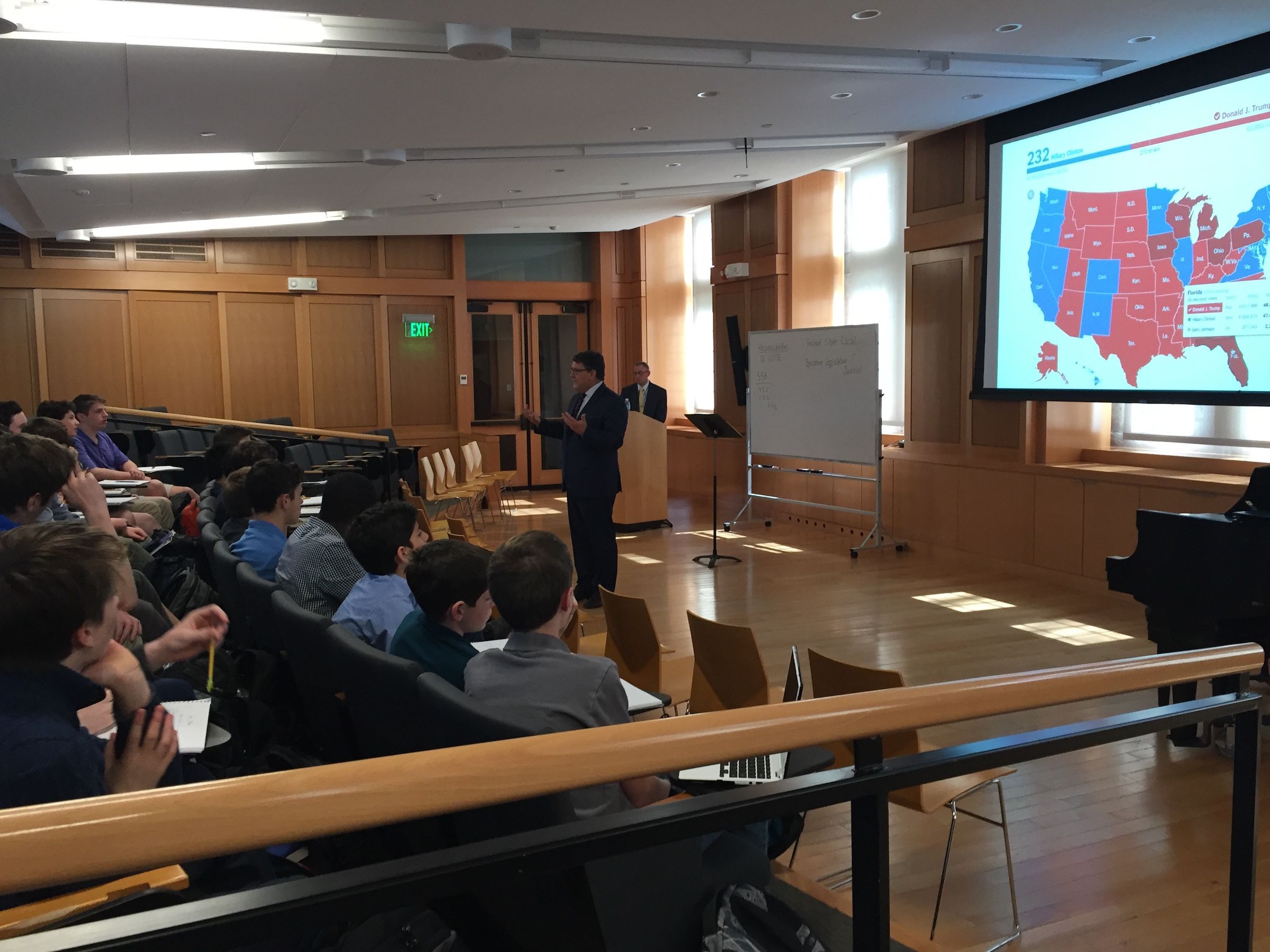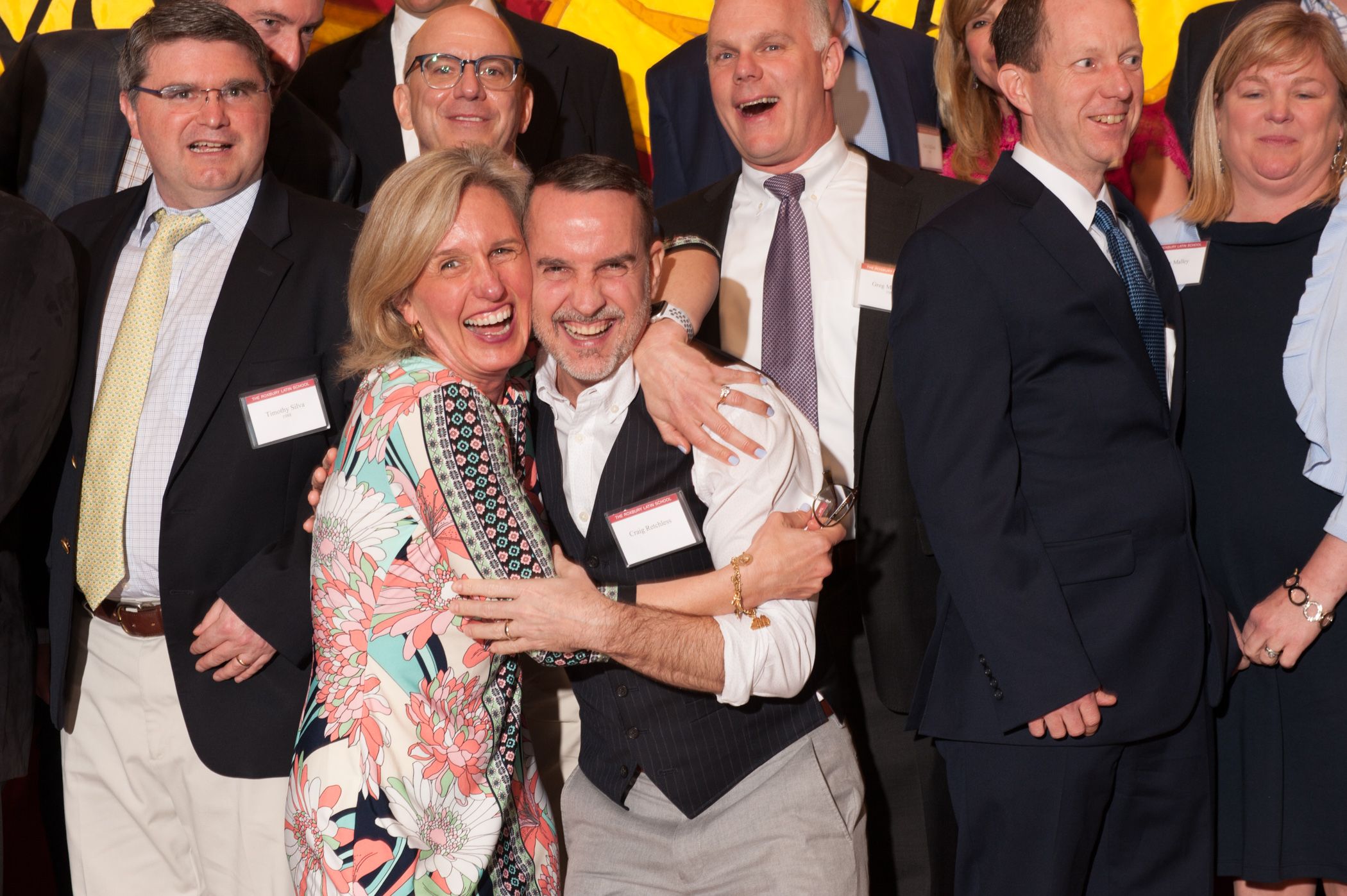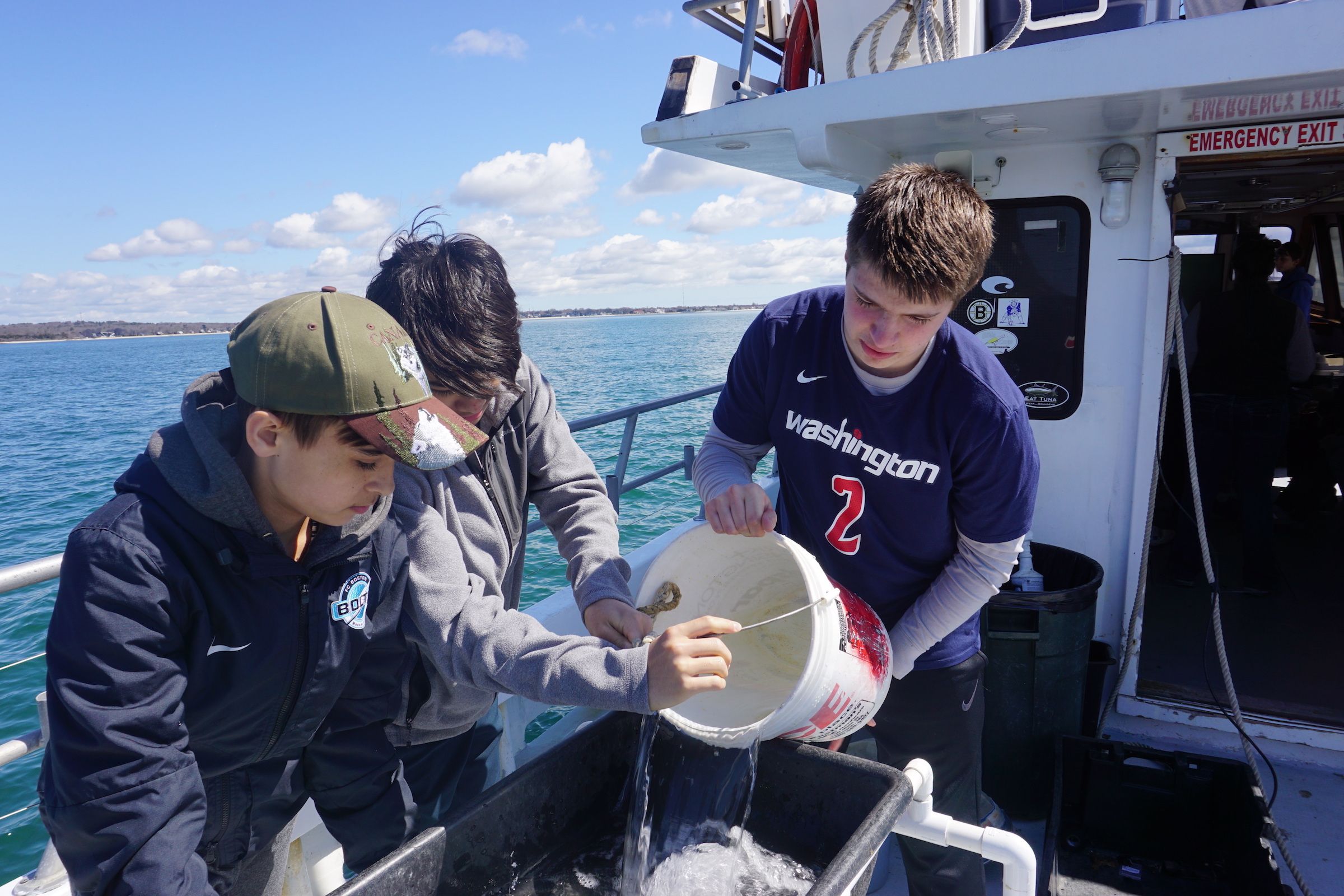This spring marked year two of the popular RL@Work program. Led by Andy Chappell, R.L.’s Director of Studies and Strategic Initiatives, the program provides boys with an off-campus experience of discovery and growth—through visits to places of work, encounters with professionals, facilitated group discussions, individual reflection, and engagement in hands-on design challenges and case studies. Consistent with the school’s mission, the program helps boys imagine how they might “lead and serve” in the years ahead. RL@Work offers boys exposure to various professions and types of leadership, challenging real-world problems, and solutions in-the-making, preparing them for citizenship, service, work, and the world.
More than forty generous alumni, parents, former R.L. parents, and friends of the school—writers, lawyers, doctors, engineers, judges, developers, investors, professors, business owners—shared their time and passions with 53 Class II boys during the final days of the school year. Boys trekked throughout Boston and Cambridge over four days, many getting their first taste of the MBTA commuting experience.
The first of the program’s four days focused on science and medicine, during which small groups of Class II boys spent the morning at various medical and research institutions. At Harvard’s MEDscience Simulation Lab, boys sewed sutures and assessed vitals on high-tech practice “dummies” designed to blink, bleed, pulse and cry as appropriate. One group practiced their laparoscopic surgery skills at the STRATUS Center for Medical Simulation at Brigham and Women’s Hospital. Another group visited Boston Sports and Shoulder Center and a local medical supply company where they repaired shoulders and knees, using state-of-the-art simulation dummies. Finally, six boys had the once-in-a-lifetime experience of scrubbing into two heart bypass surgeries, care of Dr. Streckenbach, an anesthesiologist with Mass General Hospital and parent to two R.L. boys. The entire group convened later that afternoon on MIT’s campus to hear from Mr. Iqbal Dhaliwal P’21 and his team at the Jameel Poverty Action Lab (J-PAL) where researchers are combating poverty around the world with tangible solutions, based on economics.
Days two and three of the program focused on entrepreneurship of all kinds. One morning began with a presentation by Pulitzer Prize-winning journalist and R.L. parent Gareth Cook, who spoke with boys about the rewards and perils of journalism in today’s climate. After a discussion with Mr. Cook in the Evans Choral Room, the boys and their chaperones walked to the nearby commuter rail station to head further into the city, for meetings and activities with tech startups, real estate investors, designers, and a range of individuals working on innovative, interdisciplinary solutions through MIT’s Media Lab, coordinated by R.L. parent John Werner.
The final day of the program focused on law and public service, and, in small groups, students met with nearly twenty men and women whose life’s work is focused, in various forms, on justice. From an assistant U.S. attorney, to a white-collar criminal defense attorney, to a real estate and property lawyer, to a panel led by Suffolk County District Attorney Dan Conley P’14, boys gained a perspective on the many forms that a law career, and a career in public service, can take.
The culmination of the four days found the boys in the Champions Club at Fenway Park with three members of the Red Sox franchise, including Mike Regan ’04, Assistant Director of Baseball Administration; Steve Kelley ’09, Manager of Business Development; and Tim Zue, Executive Vice President and CFO of the Boston Red Sox. The trio reinforced to the boys, by virtue of their own professional experiences, the themes that over four day had become familiar in any successful pursuit, regardless of the profession or discipline: the importance of teamwork and communication; willingness to fail and learn from that failure; creating networks and developing relationships; being open to the unknown, and to exploring new ideas; working hard and being persistent; and understanding that the path to meaningful success isn’t always traditional or straightforward. (Afterward, the boys stayed with members of the faculty to watch the Red Sox beat the Toronto Blue Jays, 8-3, under sunny skies.)
The boys take away lots of lessons and inspiration from four intensive days. One reflected, “As Marvin said at Mass General: ‘Do something that—no matter how stressed you may be at work one day—still makes you happy to go back the next day.’” Another said, “It’s clear that R.L. is preparing me for a life of work and service. Now I can truly see what I am working for.”
We are grateful to the more than 40 men and women who generously shared their time, talents and spaces to provide our boys an insider’s view on so many possibilities and paths toward meaningful pursuits:
Andrew Eyre ‘02, Stratus Center for Medical Simulation, Brigham and Women’s Julie Joyal and Dr. Britt Lee P‘22, Harvard Medical School, MEDscience Simulation Lab Scott Streckenbach P’19, ‘22, Mass General Hospital Paul Weitzel ’86, P’16, ’18, ’20, ’22, Boston Sports and Shoulder Center, New England Baptist Hospital Iqbal Dhaliwal, P’21, Executive Director of Abdul Latif Jameel Poverty Action LabGareth Cook, P’20, New York Times Magazine, Contributing Writer Peggy Eysenbach, Nancy Adams, and Matt McCambridge ’94, MIT D-Lab and Edgerton Center Lou Goldish, MIT Venture Mentoring Service Dave Grossman ‘97 and Jake Grossman ‘00, Grossman Companies Gavin Murphy ‘98, Annkissam Eben Pingree ’00, Evertrue John Werner, P’21, MIT Media Lab, CEO of Aria and Vice President of Meta Michael Berk P’19, ’21, TA Associates Chris Mitchell ‘89, Spectrum Equity Greg Schmergel ’86 and Rahul Sen, Nantero Ron Allen ’95, Shire, and Dave Giordano ’96, Giordano and Chavous Mark Balthazard P’13, ’14, Assistant US Attorney, and Greg Noonan ’94, Hogan Lovells Paul Evans ’03, and Bob O’Connor ’85, DLA Piper Guy Green ’13, Peter Walkingshaw ‘06, Peter Rosenberg P’05, ’09, and John Wang, P’24, Ropes and Gray Tim Silva ‘88, and Arjun Jaikumar, ’01, WilmerHaleDan Conley, P’14, Suffolk County District AttorneyAttorneys Frank Kanin ’06, Pat Haggan, Peter Pasciucco ’01, Ramon Pascual ’07, Gavin Pittore ’12, Rob Settana ‘01, Ed Zabin, P’23 Tim Zue, Steve Kelley ’09, Mike Regan ’04, Boston Red Sox Organization


